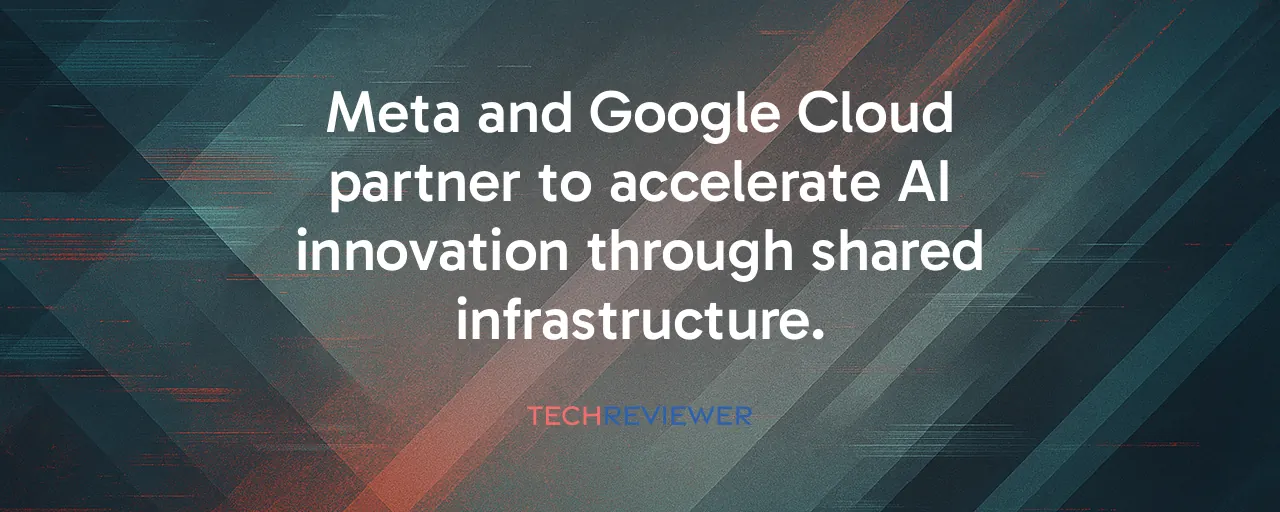A New Chapter in AI Ambition
Meta's recent move to partner with Google Cloud for a $10 billion, six-year deal marks a pivotal moment in the race to dominate artificial intelligence. The agreement, one of the largest in Google Cloud's history, positions Meta to harness Google's specialized AI hardware, like Tensor Processing Units, to fuel its ambitious data center expansion. With Meta projecting $66-72 billion in capital spending for 2025, mostly aimed at AI, this partnership signals a broader shift in how tech giants are navigating the demands of next-generation computing.
The deal, reported on August 21, 2025, by The Information and later confirmed by multiple sources, underscores Meta's urgency to scale its AI capabilities. From powering Llama models to enhancing features across Facebook, Instagram, and WhatsApp, Meta requires massive compute resources immediately, without waiting years for its own infrastructure. Google's infrastructure, including its high-efficiency Jupiter network and Vertex AI pipelines, offers a shortcut while Meta builds its own multi-gigawatt data centers.
Why Meta Chose Google's Playbook
Meta's decision to lean on Google Cloud wasn't made lightly. The company has long relied on Amazon Web Services and, more recently, Microsoft Azure for its computing needs. So why pivot to Google? The answer lies in Google's AI-optimized hardware. Its Ironwood TPUs deliver 1.7 times the throughput of NVIDIA's H100 GPUs for fine-tuning models like Llama-3-70B, according to pilot tests. That kind of efficiency translates to faster training and lower costs, critical for Meta's goal of deploying 1.3 million GPUs by the end of 2025.
The partnership, however, carries risks. Porting Meta's PyTorch-based systems to Google's XLA framework requires significant retooling, and there is a chance of vendor lock-in if Meta's workflows become too TPU-specific. Nevertheless, immediate access to Google's infrastructure gives Meta a competitive edge in an industry where speed is everything.
Coopetition Redefines the Cloud Wars
This deal highlights a fascinating trend: 'coopetition,' where rivals collaborate to outpace mutual competitors. Meta, a longtime AWS customer, now diversifies its cloud strategy, gaining leverage in negotiations with Amazon and Microsoft. Google Cloud, in turn, scores a major win, building on its June 2025 deal with OpenAI to prove it can compete with AWS and Azure. The stakes are high, with hyperscaler capital spending projected to top $300 billion in 2025, driven largely by AI workloads.
Historical parallels exist. Apple has used Google Cloud for iCloud storage since 2016, and Netflix runs on AWS despite competing in streaming. These partnerships show that shared goals can outweigh rivalry. For Meta and Google, the collaboration strengthens their positions in the AI race, but it also intensifies scrutiny from regulators worried about market concentration and data privacy. Both companies will need to navigate these concerns while integrating their systems under a shared responsibility model for data protection.
Lessons From the Ground: Environmental Trade-Offs
The Meta-Google partnership also brings environmental challenges into focus. A case study from Newton County, Georgia, illustrates the issue. Meta's data center there sparked local backlash over water usage, highlighting the resource demands of AI infrastructure. With plans for gigawatt-scale facilities like Prometheus in 2026, Meta will need to address these concerns head-on. Google, for its part, has experience mitigating such impacts, having secured renewable-energy agreements for its data centers to offset carbon.
Another lesson comes from Google's own playbook. Its prior projects show the value of proactive community engagement. By negotiating renewable-energy contracts, Google reduced the environmental footprint of its facilities. Meta could follow suit, potentially collaborating with Google on joint procurement of carbon-free energy. These examples underscore a critical reality: scaling AI requires balancing innovation with sustainability, especially as data centers strain local power and water supplies.
What's Next for AI and Beyond
The Meta-Google deal sets the stage for faster AI advancements, from smarter assistants to improved content moderation across Meta's platforms. Developers and open-source communities may also benefit, gaining access to larger Llama checkpoints hosted on Google Cloud. However, the partnership raises questions about the concentration of AI compute among a few giants. Antitrust regulators are watching closely, particularly in the EU and India, where data-sovereignty rules could limit where Meta processes user data.
Looking ahead, expect more cross-rival alliances as companies race to secure AI infrastructure. Regional sovereign clouds and AI-optimized private offerings are likely to emerge, driven by demand for specialized hardware. For now, Meta's bet on Google Cloud signals a new phase in the AI arms race, one where collaboration, competition, and environmental responsibility will shape the future of innovation.
